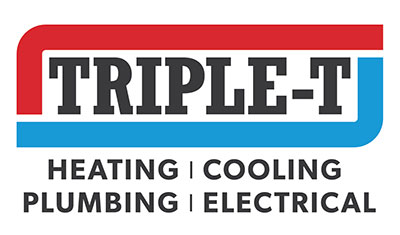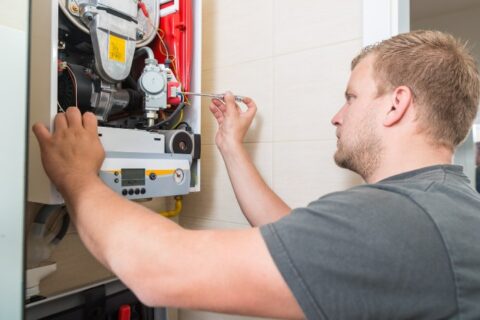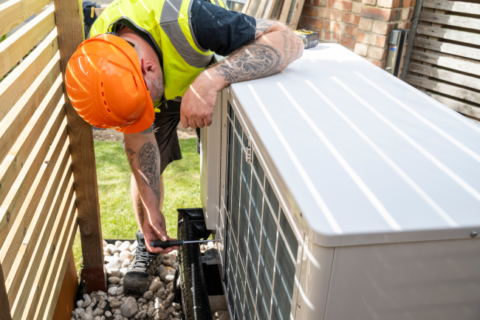Is a Heat Pump Better Than an AC?
Are you in the market for new HVAC equipment? Installing the right heating and cooling system is critical for maximizing home comfort and minimizing energy bills. If you’ve always had an air conditioner and furnace, you may assume this is the best option for your Utah home. But have you considered the benefits of a heat pump? If you’re not sure what a heat pump is, learn how it compares to an AC unit. Then, weigh the pros and cons of each system to help you decide which one is right for you.
What’s the Difference between a Heat Pump and an Air Conditioner?
In the summer, a heat pump and air conditioner operate identically, removing heat and humidity from the indoor air to leave you cool and comfortable. The difference comes in the winter.
AC units are most commonly paired with furnaces, which convert natural gas, propane, oil, or electricity into usable heat for your home. On the other hand, a heat pump extracts heat from outdoor air and deposits it inside, effectively working like an air conditioner in reverse. Heating your home this way is possible because relatively chilly outdoor air still contains enough energy for a heat pump to warm your home.
The Components of a Heat Pump vs. Air Conditioner
Heat pumps and air conditioners are nearly indistinguishable to the untrained eye. They both consist of an outdoor condensing unit and an indoor evaporator coil connected by refrigerant lines. But heat pumps contain three components an air conditioner doesn’t have:
- A reversing valve reverses the refrigerant flow, making it possible to move heat inside in the winter.
- A backup electric resistance heater provides supplementary heat on cold days.
- An air handler distributes conditioned air through the ductwork. An air conditioner doesn’t need its own air handler because it circulates air using the furnace blower.
Pros and Cons of a Heat Pump
Pros
- No fossil fuels: The dangers of natural gas leaks and carbon monoxide poisoning don’t exist with an electric heat pump. With no open flames or fumes to vent, heat pumps boast one of the most impressive safety records of any HVAC equipment.
- Lower electric heating costs: If electricity is your only fuel choice, you can slash your heating bills by switching from an electric furnace to a heat pump. Heat pumps are so efficient because they move heat rather than generate it from a fuel source. Consuming one unit of electricity to pump three or four units of heat into your home allows for an impressive 300 to 400 percent efficiency. In comparison, a furnace can never be more than 100 percent efficient, no matter how advanced.
- Whole-home comfort with a single system: Thanks to the heat pump’s ingenious reversing valve, you can stay comfortable in all four seasons using one piece of HVAC equipment.
Cons
- Less efficient in cold climates: Heat pumps rely on a far less efficient backup heating element when the temperature dips below freezing. The outdoor portion is also susceptible to ice buildup, requiring the unit to enter defrost mode to continue operating. Both of these factors drive up the cost to operate a heat pump in the winter. Fortunately, cold-climate heat pumps are continually improving, making them increasingly viable in frigid regions with each passing year.
- Higher installation cost than an AC alone: The cost to purchase and install a heat pump is generally higher than a comparable air conditioner. However, you may save money on replacement costs compared to installing a new AC unit and furnace.
- Shorter lifespan than a furnace: While heat pumps and air conditioners have a similar life expectancy of about 10 to 15 years, gas furnaces can last much longer. Consider this when making lifetime cost comparisons.
Pros and Cons of an AC/Furnace Combination
Pros
- High operating temperatures: Furnaces generate nice, hot air for quicker recovery times and a warm, cozy feeling. On the other hand, heat pumps produce more lukewarm air to gradually increase the indoor temperature. This can cause a drafty feeling if you sit too close to a vent.
- Efficient operation at low temperatures: Furnace performance doesn’t suffer when the outdoor temperature drops. You can expect the same hot air to blow from your vents, whether it’s 50 degrees or well below freezing.
- No need to defrost: All furnace components are located indoors, so they are never exposed to the elements and are not susceptible to freezing. This means the unit expends all its energy heating your home, not defrosting itself.
Cons
- Higher installation cost than a heat pump: Because furnaces and air conditioners are two separate systems, installing both generally costs more than installing a heat pump alone.
- Higher operating costs: Electric furnaces typically cost three to four times more to heat your home than a heat pump. And even the most efficient natural gas furnaces have higher operating costs than mid-range heat pumps.
- Safety and air quality concerns: In places where natural gas is available, gas furnaces are more common than electric furnaces because they cost so much less to operate. However, all combustion appliances have the potential to cause gas leaks and carbon monoxide exposure.
Contact Triple T for Help Deciding between an AC and Heat Pump Unit
For more help choosing the right HVAC system for your Utah home, turn to Triple T Heating, Cooling & Plumbing. We install, replace, repair, and maintain a wide range of heating and cooling systems. So whether you choose a traditional air conditioner and furnace combo or opt for a heat pump, we’ve got you covered. We draw on nearly 50 years of experience and bring a can-do attitude to every job we complete.
To request an estimate, please contact us at 801-798-7711 if you live in Utah County or 435-275-4011 if you’re a Washington County resident. You can also contact us online to ask questions or schedule HVAC services.


